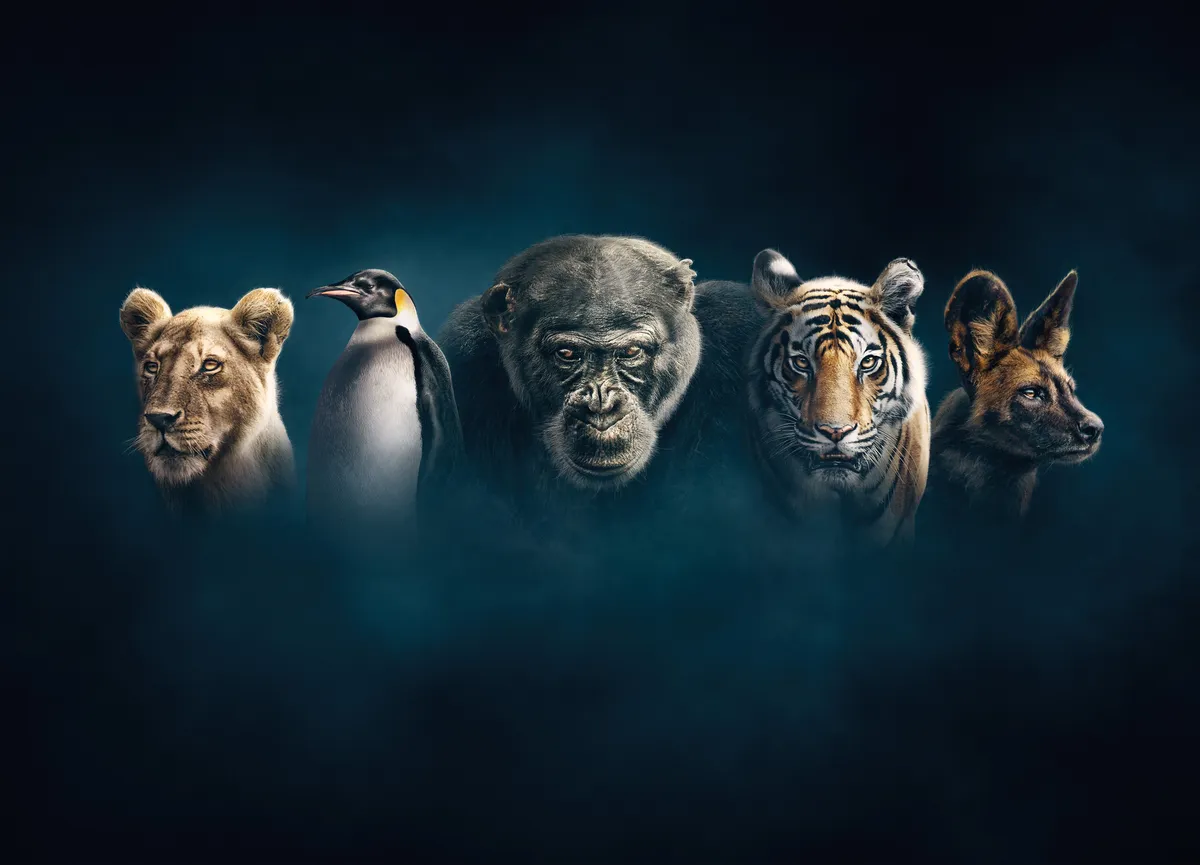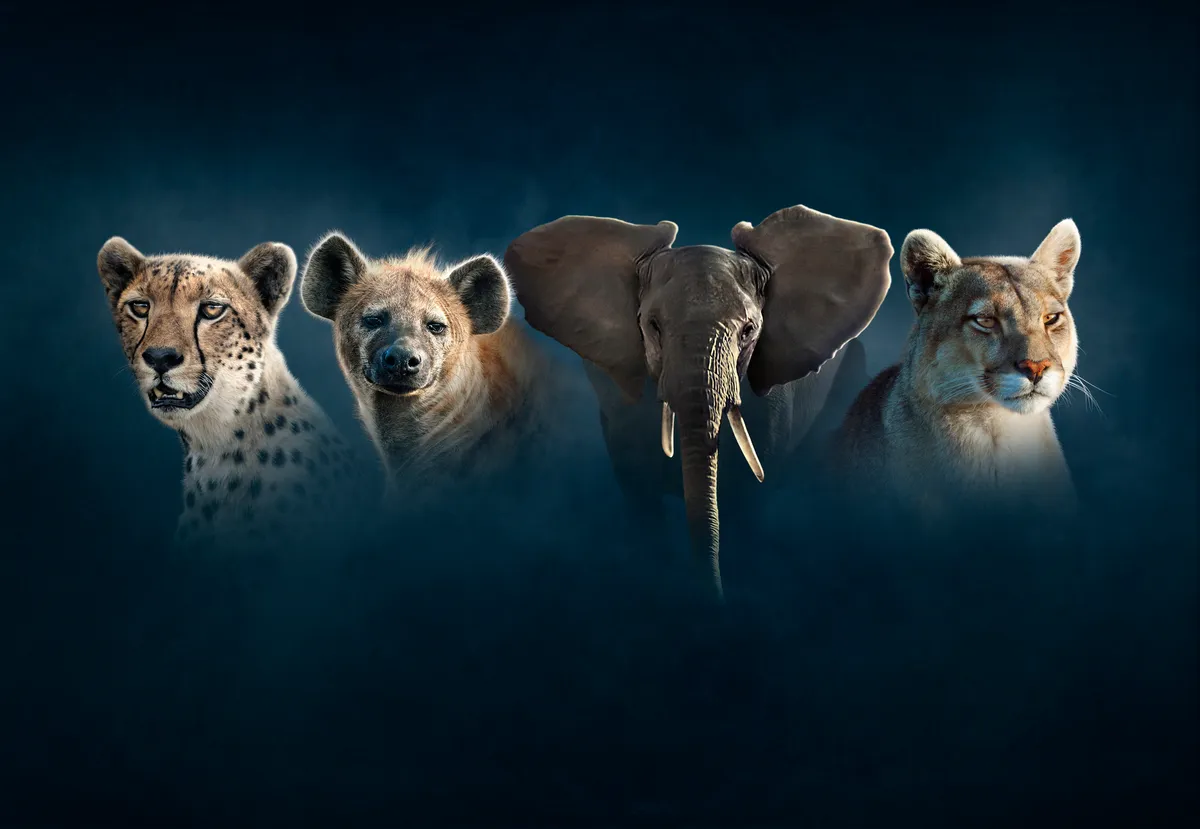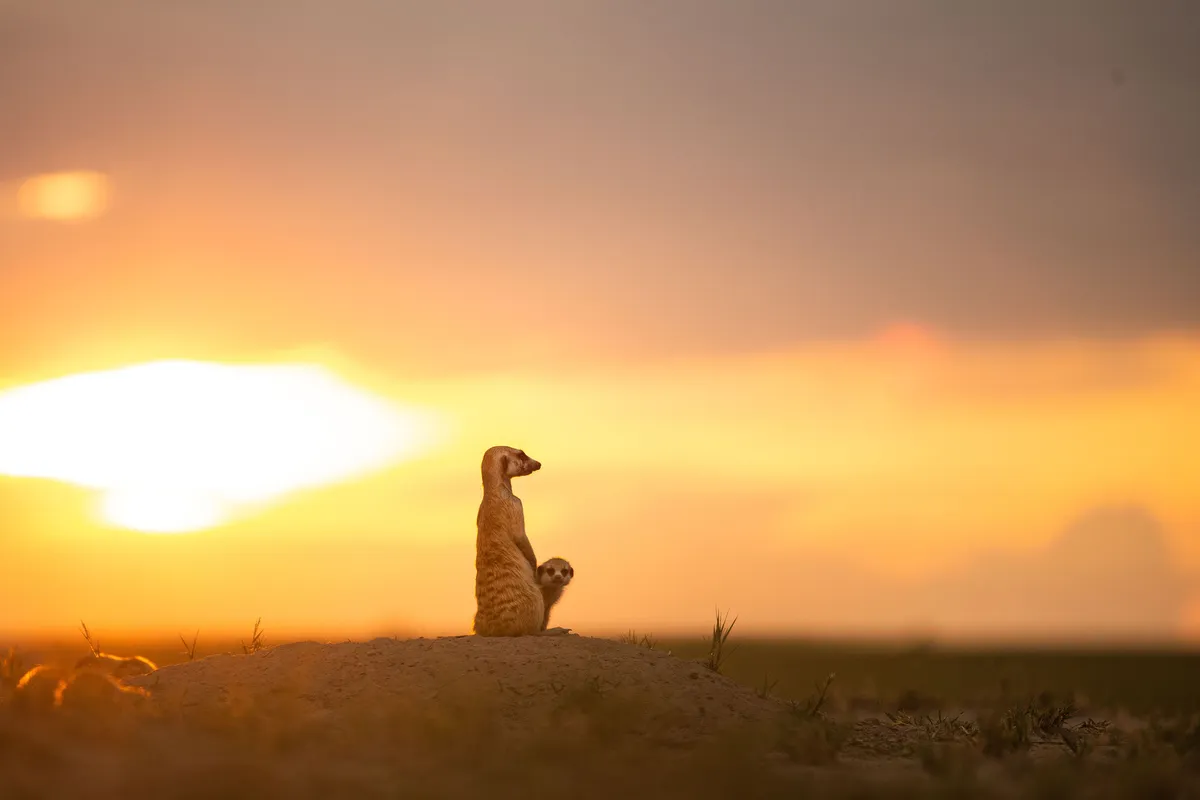When is Macaque: Monkeys In The Mountains – A Dynasties Special on TV?
Macaque: Monkeys In The Mountains – A Dynasties Special is due to air at 7.30pm on Friday 30th December on BBC One.
After broadcast, it will be available to watch on BBC iPlayer.
What is Macaque: Monkeys In The Mountains – A Dynasties Special about?
This new contribution to the ongoing Dynasties series focuses in on a troop of Barbary macaques living in the Atlas mountains of Morocco. And specifically, the trials and tribulations of a male called Mac.
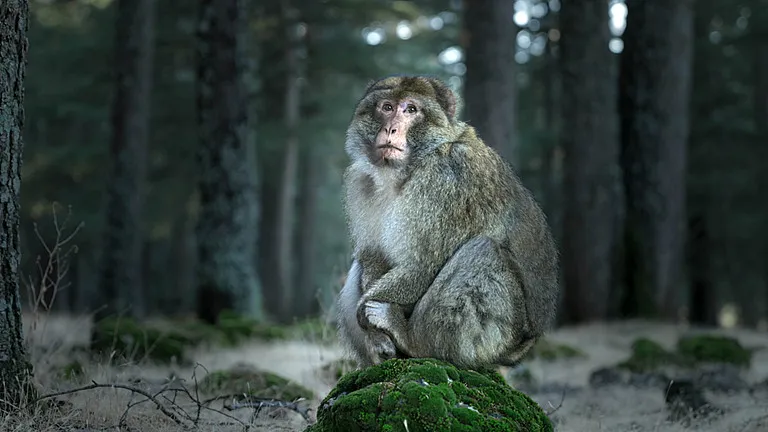
At the start of the episode, the troop is without a leader and Mac steps up to the plate – but will he manage to hold onto power when faced with subordinates eyeing his throne, challenges from a rival troop and the extreme weathers?
More on the Dynasties series:
Who is narrating Macaque: Monkeys In The Mountains – A Dynasties Special?
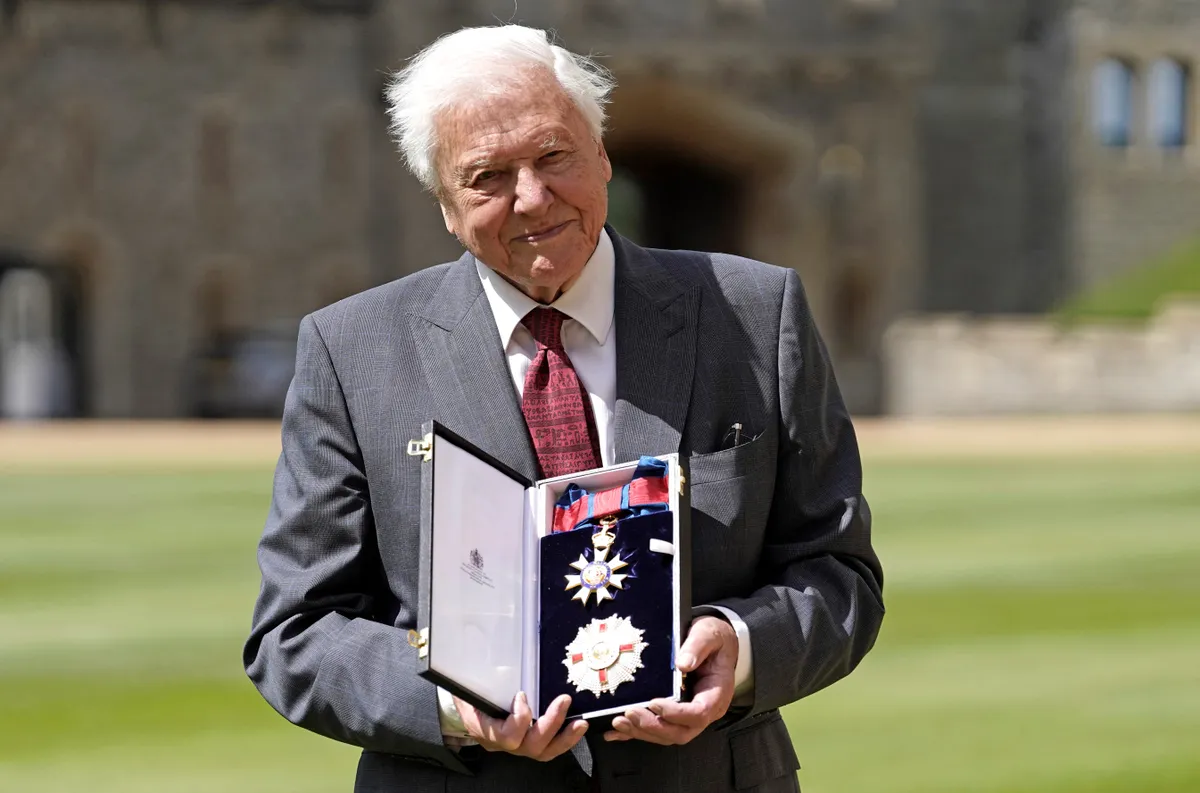
Like the previous Dynasties series and one-off episode, the Macaque episode will be narrated by the broadcaster and naturalist Sir David Attenborough.
Since first presenting Zoo Quest in 1954, Attenborough has been a regular presenter and narrator of natural history programmes, particularly for the BBC, including landmark series such as Blue Planet and Planet Earth.
Interview with series producer Rosie Thomas
How did you decide on following this particular macaque family?
We chose Barbary macaques as they are a ‘group living’ species with a lot of social politics, but also because of where they live – the Atlas Mountains is an incredible location that experiences extreme seasons.
We had a lot of conversations with the scientists who have studied them before we settled on the group we eventually followed for 18 months. Filming had been delayed by Covid, and so when we actually got to Morocco, no one had been following any of the groups for about eight months. It took us days to be able to find them, and when we finally tracked down the selected group, the alpha male was missing. No-one knew what had happened to him.
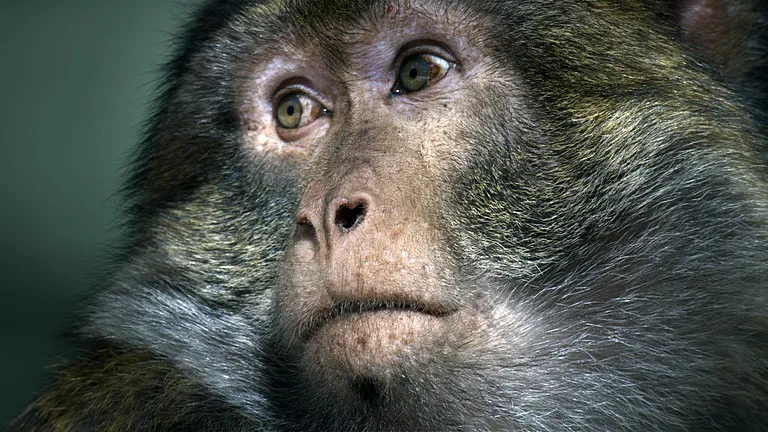
As a result, we landed in this group at a moment in time that was not only highly unusual, but a time of intense competition and extreme fragility – things could change in any direction. It felt like a real starting point for the next chapter of this group, and I immediately knew this was the group for us. Over the course of the next few weeks we saw one male emerge above the others – one that the male scientists had named Mac.
Were there any great behind the scenes stories or close encounters?
Everyday filming these macaques was different, and it all had to be done on foot. Depending on the season, we might have to trudge through snow in freezing temperatures, or trek miles following them in scorching hot temperatures in the high 30s. Their territory isn’t actually that large, but they rarely stayed in the same area very long, and they would often spread out, so finding individual monkeys in a group of nearly 80 was never an easy task. We’d have to get to them before dawn as they were waking up, and stick with them until they chose their sleeping trees at the end of the day.
We would try and stay with an individual monkey for a whole day, but there were often times when this just became impossible – they could move through the forest quietly and speedily, and they could give us the slip incredibly easily!
And when fights would kick off, they could move quickly from one area to another with little warning – fights are fast, fierce and very chaotic, so everyone had to be ready and alert, especially through the mating season when tensions were always at their highest.
Were there any funny or scary behind-the-scenes stories?
Probably one of the most unusual things that we had to do was when the snow came. The road up the mountain would get really icy so the town would close the road – that meant there was only one way to get up there to film…horses. So, in the heavy snow, the crew had to hire horses, load up the kit on a few of them, and ride up the mountain to film. They had to travel light, and always be watching the weather so as to not get totally trapped up there!
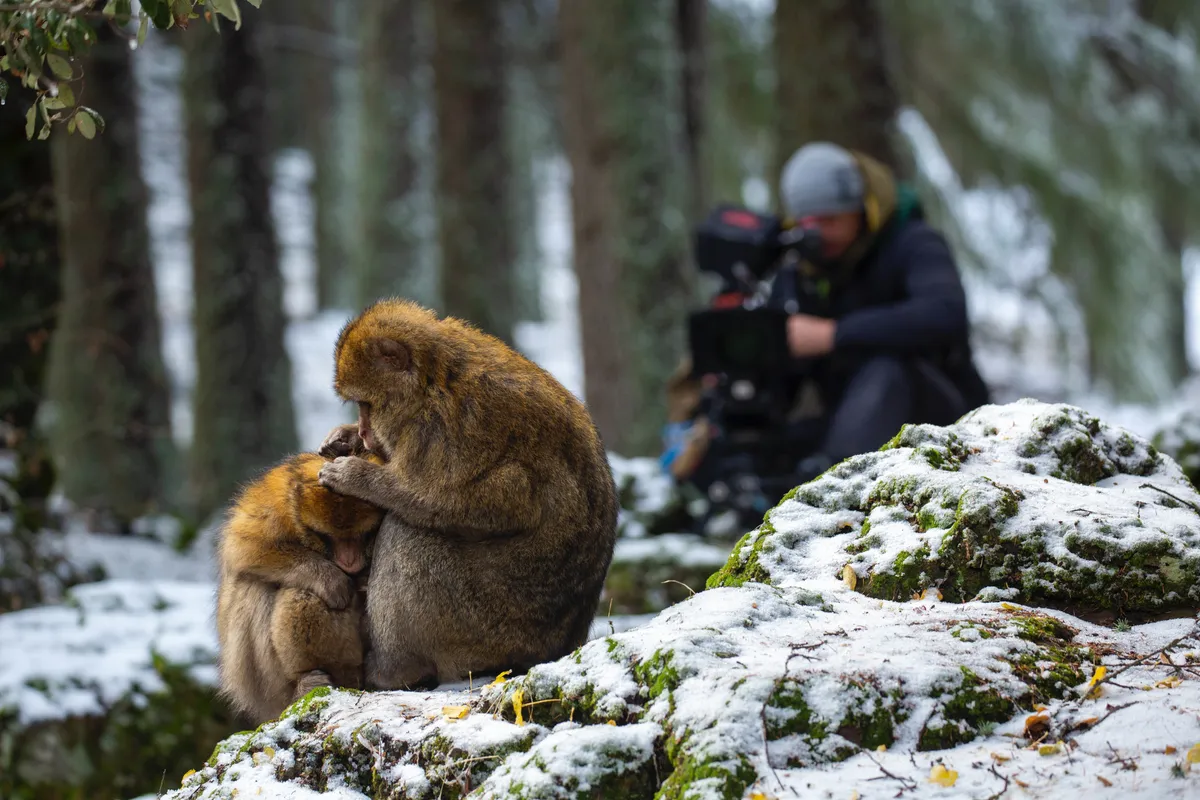
As for scary moments, the fights were brutal, but they would always just go around us and ignore us. But occasionally they would use you like a shield and suddenly you’d find some of them behind you and others in front…that was always the time to make a quick exit!
One of the most surprising things however came from the danger people can pose to the monkeys, rather than the other way around. Sometimes tourists would feed the macaques, which in itself is a bad idea, but we witnessed how this can also expose the monkeys to really serious threats. One day, we thought there was a car pulling over to feed the monkeys but, shockingly, they tried to grab one of the new babies in the group. We knew poaching here is a huge problem, but we never thought anyone would try and do it so blatantly in broad daylight. It was a stark reminder to us all of just how vulnerable these animals are.
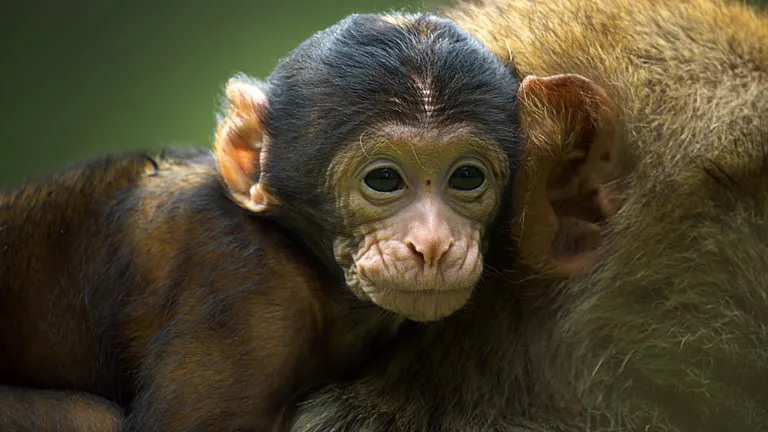
What was your most memorable moment when filming the programme?
For me it was seeing my first big fight. Before travelling out to Morocco for the first time, I’d been told that they were a relatively calm species that rarely fought. When we arrived and found the chosen group (a lot of walking and searching was required!) we realised that the alpha male that had been in charge for over 8 years had disappeared during the first covid lockdown.
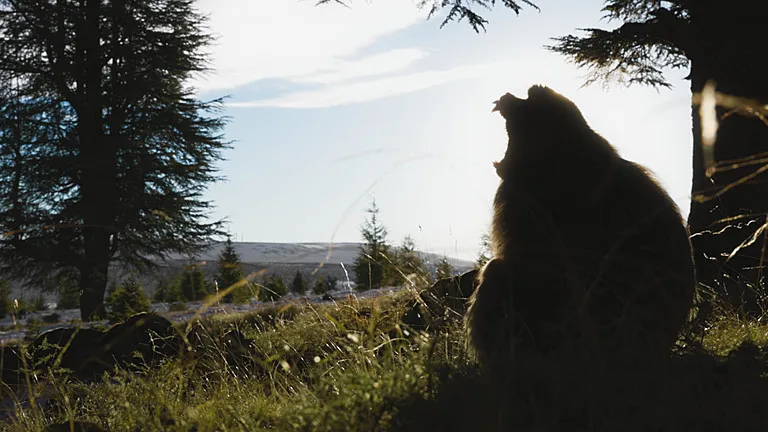
And within hours we witnessed our first huge fight – there was a battle on to claim the empty throne and all the males were at full on war. It took me totally by surprise and the noise, aggression and chaos was so tense and dramatic that I was instantly hooked into the story. Their canines look totally terrifying, and you just know that they can cause major damage if given the chance!
What was the biggest challenge when filming the episode?
This film had many challenges – the extreme seasons, the freezing temperatures, and severe heat, the long days, the travelling for miles each day on foot, and the many occasions when we would lose the group entirely and have to trek to find them.
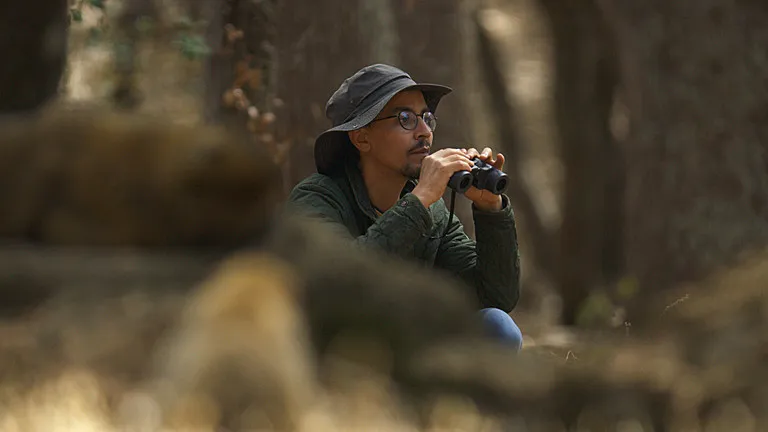
But by far and away the biggest challenge was Covid. We were delayed in starting the film due to the first lockdown, and when we could start up, we had to fly in one crew from the Caribbean, another from Germany, and we worked with a Moroccan. Thankfully we had an amazing team in Morocco working with us who were able to help us navigate the situation.
What do you hope viewers will take away from watching Dynasties macaque?
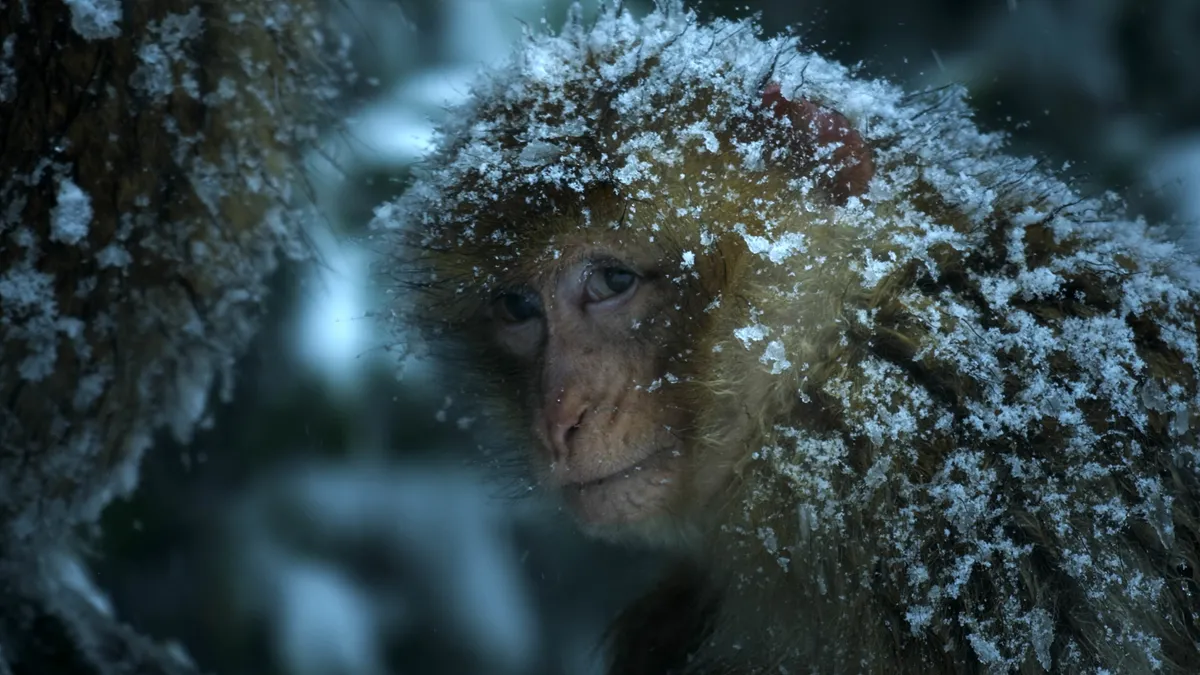
I really hope that the audience has a deeper understanding of the realities of life for these animals, and more importantly than ever, the reality of the world in which these monkeys now find themselves in. Climate change is affecting these monkeys so greatly, that they are being pushed to their limits, with severe droughts, the autumnal rains no longer arriving and freezing winters with extreme snowfall.
In addition to this, the threat of poaching to these monkeys is a constant battle that the scouts and parks authorities are trying to fight. Like so many species globally, these macaques are up against so much, and the more awareness that we can bring to the harsh realities of their existence, the better.
Which other species have featured in Dynasties and Dynasties II?
The previous Dynasties episodes have featured a wide range of mammal – and one bird – species. All previous episodes are available to watch on BBC iPlayer.
Main image: A Barbary macaque in the snow. © BBC Studios
